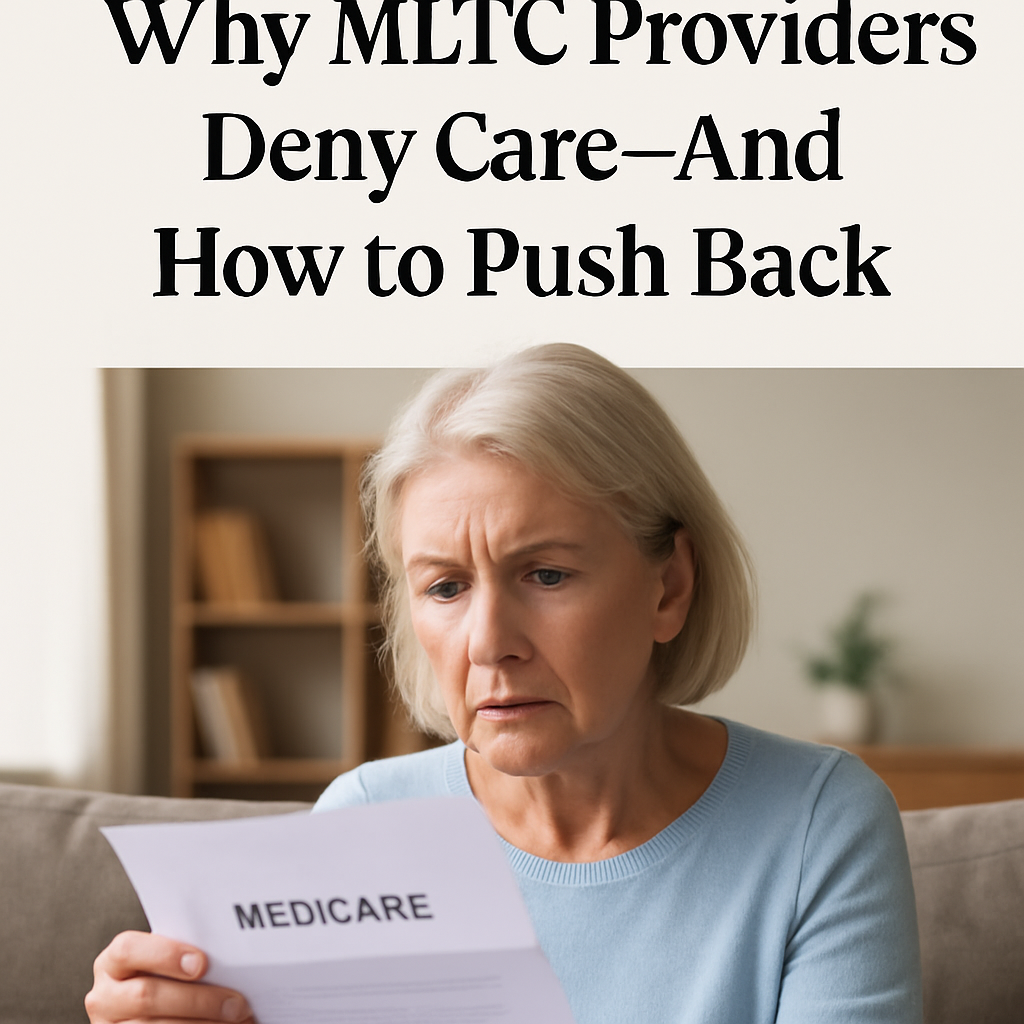If you or a loved one depends on Managed Long-Term Care (MLTC) in New York, a denial letter can feel like a gut punch. Suddenly, the care you’ve relied on is reduced or stopped, and the reason might be buried in confusing language. You’re left asking: Can they really do this? And what can I do next?
Table of Content
1.Why MLTC Providers Deny Care—And How to Push Back
2.Why MLTC Denials Happen
3.The Role of Assessments
4.How to Respond to a Denial
5.Documentation Is Your Best Defense
6.Why Legal Help Can Make a Difference
7.How SecureSafer Helps
8. A Final Touch: Respect, But No Pressure
9. Helpful Reminders from SecureSafer Families
Why MLTC Providers Deny Care—And How to Push Back
In New York, MLTC plans are required to follow strict guidelines set by New York State Department of Health (health.ny.gov) and, in some cases, Medicare (medicare.gov). Yet, denials happen — often because of documentation issues, medical review findings, or policy interpretations. The good news? You do have rights, and there are steps you can take to fight back.
Why MLTC Denials Happen
While every case is unique, many denials fall into common patterns. Plans may claim your condition has improved, that you no longer meet the criteria for certain services, or that the care requested isn’t considered medically necessary under their rules. Sometimes, the issue is as simple as missing paperwork from your doctor or outdated care assessments.
For example, if an MLTC care manager’s notes suggest you are more independent than you truly are, your hours could be cut. This is why it’s critical to review all care assessments and keep your own documentation.
The Role of Assessments
In New York, MLTC plans use state-approved assessments to determine how much care you need. If the assessment shows improvement, even if your condition feels unchanged to you, the plan may reduce your hours. This is one of the most common triggers for a denial notice.
ADVERTISEMENT
The state’s rules require that you receive written notice with clear reasons for the decision and instructions for how to appeal. Unfortunately, these notices can still be filled with legal and medical jargon.
How to Respond to a Denial
The first step is to carefully read the denial letter. Identify the stated reason, the date the change will take effect, and the deadline for appealing. In most cases, you must request an appeal within 60 days of the notice date, but acting sooner is always better.
You can request a Fair Hearing with the New York State Office of Temporary and Disability Assistance (otda.ny.gov) if you believe the decision was wrong. You may also be able to keep your current care during the appeal process if you file quickly — this is known as aid continuing under state rules.
Documentation Is Your Best Defense
When you appeal, your strongest evidence comes from medical records, letters from your doctor, and your own detailed notes. Describe exactly how your daily life is impacted without the denied service. If possible, include examples of tasks you cannot safely do alone — cooking, bathing, getting dressed — and any incidents that happened when help wasn’t available.
Why Legal Help Can Make a Difference
While you are not required to hire an attorney, many New Yorkers choose to get help from legal aid organizations or elder law attorneys familiar with MLTC disputes. They can ensure your appeal meets all technical requirements and deadlines, and they may spot arguments you wouldn’t think to make on your own.
Preventing Future Denials
Even if you win your appeal, it’s wise to put safeguards in place. Attend every reassessment prepared, with a family member or advocate present. Keep your doctor updated on any changes to your health, and make sure those updates are documented in your medical record.
In addition, maintain a personal care log. Write down each day’s care activities, how you felt, and any challenges you faced. If a future denial happens, you’ll have a detailed history ready to support your case.
ADVERTISEMENT
How SecureSafer Helps
At SecureSafer, we help New Yorkers understand the complex world of long-term care coverage. Our team educates families on how MLTC works, what to expect during assessments, and how to navigate appeals. While we do not guarantee outcomes, we focus on empowering you with accurate information and connecting you to trusted local resources.
The Bottom Line
An MLTC denial can be frustrating and overwhelming — but it’s not the end of the road. By knowing why denials happen, acting quickly, and building a strong appeal with proper documentation, you give yourself the best chance of protecting your care.
For official guidance and your legal rights, visit:
Contact SecureSafer.com today to schedule a consultation and learn how to prepare your best case.
Compliance Note: This article is for informational purposes only. It does not offer legal advice or guarantee benefit approvals. All MLTC decisions are subject to applicable federal and New York State regulations. For authoritative guidance, consult official sources such as medicare.gov, dfs.ny.gov, and health.ny.gov.
| 📞 Need help understanding an MLTC denial?Need Help Now? Don’t Wait. ✅ Call our SecureSafer team directly at SecureSafer.com or call (646) 444-2020 ✅ Request a policy review or switch evaluation today |
ADVERTISEMENT

